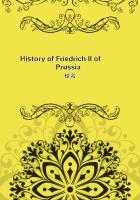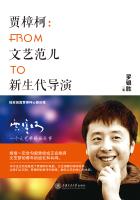I have been treated ill ever since my marriage this is in some degree the fault of the Princess Palatine,--[Anne de Gonzague, Princess Palatine, who took so active a part in the troubles of the Fronde.]-- who prepared my marriage contract; and it is by the contract that the inheritance is governed. All persons bearing the title of Madame have pensions from the King; but as they have been of the same amount for a great many years past they are no longer sufficient.
I would willingly have married the Prince of Orange, for by that union I might have hoped to remain near my dear Electress (of Hanover).
Upon my arrival at Saint-Germain I felt as if I had fallen from the clouds. The Princess Palatine went to Paris and there fixed me. I put as good a face upon the affair as was possible; I saw very well that I did not please my husband much, and indeed that could not be wondered at, considering my ugliness; however, I resolved to conduct myself in such a manner towards Monsieur that he should become accustomed to me by my attentions, and eventually should be enabled to endure me. Immediately upon my arrival, the King came to see me at the Chateau Neuf, where Monsieur and I lived; he brought with him the Dauphin, who was then a child of about ten years old. As soon as I had finished my toilette the King returned to the old Chateau, where he received me in the Guards' hall, and led me to the Queen, whispering at the same time,--"Do not be frightened, Madame; she will be more afraid of you than you of her." The King felt so much the embarrassment of my situation that he would not quit me; he sat by my side, and whenever it was necessary for me to rise, that is to say, whenever a Duke or a Prince entered the apartment, he gave me a gentle push in the side without being perceived.
According to the custom of Paris, when a marriage is made, all property is in common; but the husband has the entire control over it. That only which has been brought by way of dowry is taken into the account; for this reason I never knew how much my husband received with me. After his death, when I expected to gain my cause at Rome and to receive some money, the disagreeable old Maintenon asked me in the King's name to promise that if I gained the cause I would immediately cede the half of the property to my son; and in case of refusal I was menaced with the King's displeasure. I laughed at this, and replied that I did not know why they threatened me, for that my son was in the course of nature my heir, but that it was at least just that he should stay until my death before he took possession of my property, and that I knew the King was too equitable to require of me anything but what was consistent with justice. I soon afterwards received the news of the loss of my cause, and I was not sorry for it, on account of the circumstance I have just related.
When the Abby de Tesse had convinced the Pope that his people had decided without having read our papers, and that they had accepted 50,000 crowns from the Grand Duke to pronounce against me, he began weeping, and said, "Am I not an unhappy man to be obliged to trust such persons?" This will show what sort of a character the Pope was.
When I arrived in France I had only an allowance of a hundred louis d'or for my pocket-money; and this money was always consumed in advance.
After my mother's death, when my husband received money from the Palatinate, he increased this allowance to two hundred louis; and once, when I was in his good graces, he gave me a thousand louis. Besides this, the King had given me annually one thousand louis up to the year before the marriage of my son. That supported me, but as I would not consent to the marriage I was deprived of this sum, and it has never been restored to me. On my first journey to Fontainebleau, the King would have given me 2,000 pistoles, but that Monsieur begged him to keep half of them for Madame, afterwards the Queen of Spain.--[Marie-Louise d'Orleans, born in 1662, married, in 1679, to Charles IL, King of Spain.]
I cared very little about it, and, nevertheless, went to Fontainebleau, where I lost all my money at Hoca. Monsieur told me, for the purpose of vexing me, of the good office he had done me with the King; I only laughed at it, and told him that, if Madame had chosen to accept the thousand pistoles from my hands, I would very freely have given them to her. Monsieur was quite confused at this, and, by way of repairing the offence he had committed, he took upon himself the payment of 600 louis d'or, which I had lost over and above the thousand pistoles.
I receive now only 456,000 francs, which is exactly consumed within the year; if, they could have given me any less they would. I would not be thought to make claims to which I am not entitled, but it should be remembered that Monsieur has had the money of my family.
I was very glad when, after the birth of my daughter, [Elizabeth-Charlotte d'Orleans, born in 1676, married, in 1697, to the Duc de Lorraine. Philippe d'Orleans, afterwards Regent of France, was born in 1674; there were no other children by this marriage.] my husband proposed separate beds; for, to tell the truth, I was never very fond of having children. When he proposed it to me, I answered, "Yes, Monsieur, I shall be very well contented with the arrangement, provided you do not hate me, and that you will continue to behave with some kindness to me." He promised, and we were very well satisfied with each other. It was, besides, very disagreeable to sleep with Monsieur; he could not bear any one to touch him when he was asleep, so that I was obliged to lie on the very edge of the bed; whence it sometimes happened that I fell out like a sack. I was therefore enchanted when Monsieur proposed to me in friendly terms, and without any anger, to lie in separate rooms.
I obeyed the late Monsieur by not troubling him with my embraces, and always conducted myself towards him with respect and submission.















